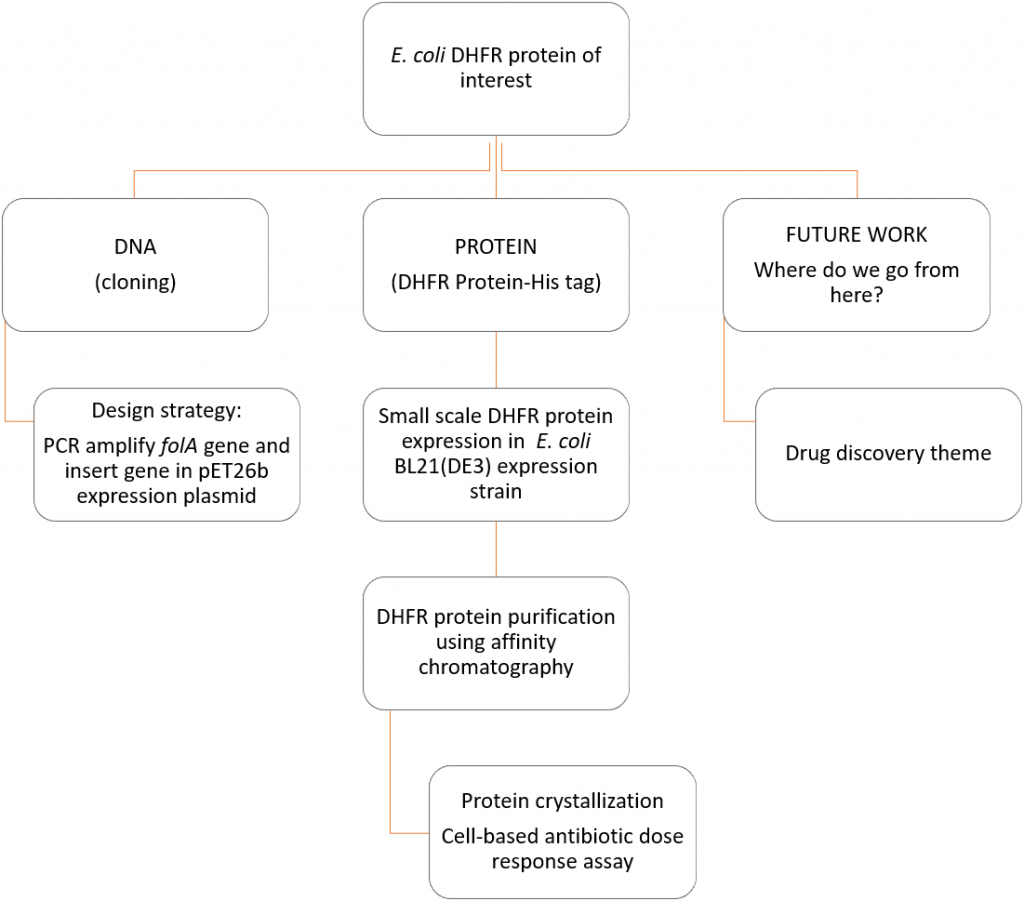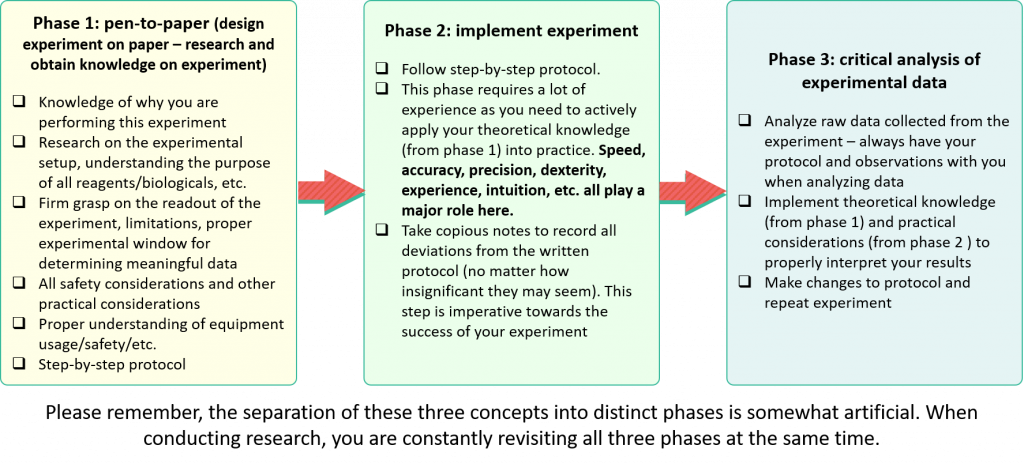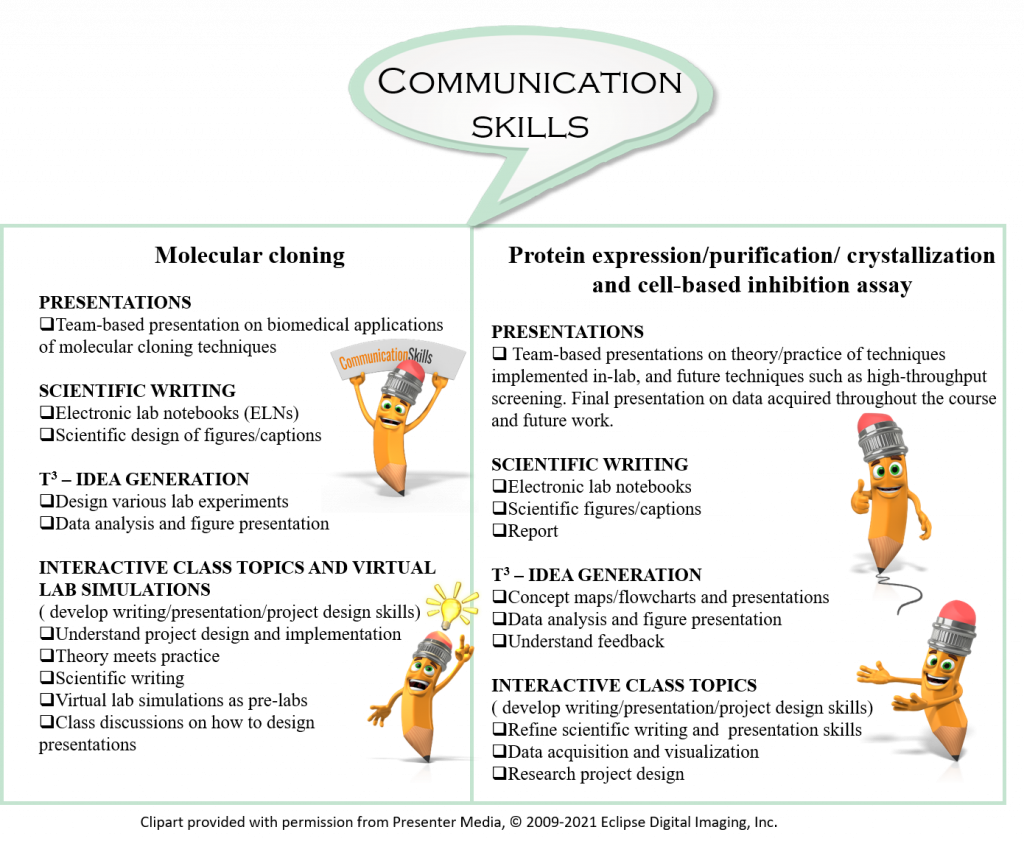Teacher resources: An overview
This course was designed to introduce 2nd year biochemistry students to the process of designing and implementing a research project. Throughout this process we focus on two types of experiments performed in the research laboratory:
- Preparatory experiments – these experiments help us prepare our reagents/system for our data generating experiments. Examples include molecular DNA cloning, protein purification, enzyme assays, etc. In these experiments we do not measure a variable or test a piece of our hypothesis. Instead, we use our scientific toolkit to construct all the reagents needed for our main experiments.
- Data generating experiments – these experiments are the main stars in our research. We work hard to get to these experiments! Importantly, the data generated from these experiments actually inform the hypothesis that we seek to test.
In this introductory biochemistry course most of our experiments fall under the preparatory experiments description. In this way, we stress the importance of proper experimental design and emphasize how each experiment fits together to achieve a desired goal (i.e. clone a gene, purify a protein). The course culminates in two data-generating experiments (protein crystallization in Chapter 10 and cell based antibiotic inhibition assays in the Bonus Chapter) that lead into the start of a research project focused on antibacterial drug discovery. This is the overarching theme of the course, and is the third branch on our workflow.

We thread this theme throughout the course to help our students understand how we piece different experiments together to formulate a testable hypothesis. In the past we used the concept of antibiotic resistance (namely DHFR point mutations that lead to antibiotic resistance) to show our students how they can design a research project with the aim of discovering new DHFR-specific antibiotics using strategies like high throughput screening, rational drug design, etc.
Undertaking and completing a research project can be a daunting endeavor for undergraduates, so in order to focus and streamline this process we compiled a list of skills often used by researchers in their day-to-day work. Ultimately, we decided to focus our course on two main skill sets:
- Communication skills
- Technical skills
The development of technical skills (aka “lab hands”) is the chief goal of the first 11 chapters of this resource. Importantly, we focus on continuity in the research process, with the product of one chapter often serving as the starting material for the experiments in the proceeding chapter. In this way students students skills (and confidence!) are built in stepwise process throughout the term. In this chapter we will now turn our attention to communication skills and the strategies we employ to foster this other critically important research.
Communication skills – these include both written and oral communication, but they also include the process of reflection. As researchers we often stop and reflect on our work at many stages throughout the research process. We can certainly teach the scientific method to our students, but do we practically apply the principles of scientific method? To achieve this, we seek to instill in our students the following basic framework for tackling research questions:

We use many different teaching practices to enhance communication skills, such as:

Team Think Tank (T3) – As the name implies, the T3 is a set of team-based exercises designed to take our students through the process of reflection in the context of research design. The T3 emphasizes not only content, but also transferable skills such as teamwork, collaboration, positivity, resilience, and creativity. We designed a series of T3 exercises at specific, key points of the course to emphasize:
- Experimental design – teams design PCR primers, restriction enzyme reactions, etc.
- Data analysis – teams analyze data, discuss results, construct scientific data figures, figure captions.
- Presentation preparation – teams work together to construct presentation slides with immediate input from instructor/teaching staff.
The next chapters provide select examples from our team think tanks.

